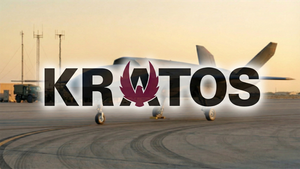The company continued to demonstrate progress across its four key pillars, focused on areas such as environmental sustainability, responsible sourcing, employee benefits, and more
Rite Aid (NYSE: RAD) today published its fifth annual Environmental, Social and Governance (ESG) Report, detailing the company’s initiatives, focus areas, and progress over the past year. The four ESG pillars introduced in the 2021 report – Thriving Planet, Thriving Business, Thriving Workplace and Thriving Community – continue to act as the lens through which Rite Aid approaches its ESG commitments, and the disclosure in the voluntary report is intended to align with the Sustainability Accounting Standards Board (SASB) framework.
“Rite Aid is a neighborhood pharmacy, and we believe our ESG commitments enable us to be a more responsible member of the communities we serve,” said Amanda Patrick, Director of ESG and Corporate Sustainability at Rite Aid. “We recognize the importance of acting as a purpose-led organization and hope to lead by example with programs that invest in our employees, push forward on DEI efforts, offer a product assortment with cleaner ingredients, minimize our impact on the planet and address health equity for more successful health outcomes.”
This year’s report also shows alignment between Rite Aid’s efforts and eight of the 17 United Nations Sustainable Development Goals (SDGs), which are designed as a framework to facilitate significant global development by 2030.
Other highlights from this year’s report across the four pillars include:
-
Thriving Planet – Rite Aid continued to work towards reducing its environmental impact by addressing energy management, waste reduction, and more, specifically by:
- Increasing the amount of renewable energy purchased, even reaching 100% renewable energy in select stores in Northern California
- Diverting more than 38,000 tons of recyclable materials from landfills over the last year
- Working toward energy-saving goals, with LED lights now installed in 49% of Rite Aid stores – up nearly 17% from last year
-
Thriving Business – Rite Aid continued its efforts to embed sustainability throughout the value chain, including responsible sourcing, increased data security, and improved product safety and quality. Those efforts include:
- Continuing to integrate sustainability into the procurement process, collecting data on topics such as supplier diversity, product packaging and chemical management
- Expanding collaboration with own-brand suppliers to further advance efforts to reduce and eliminate harmful chemicals in product offerings
- Leveraging a consumer-led product attribute program that supports Rite Aid’s strategy around whole health and cleaner-ingredient products by identifying and communicating relevant product attributes (i.e., paraben-free, cruelty-free) in an effort to aid shoppers in their purchase decisions
-
Thriving Workplace – Across Rite Aid, investments were aimed at improving associates’ experience, development, opportunity and wellbeing by focusing on DEI, engagement, benefits, and more. Improvements include:
- Providing improved benefits to associates, such as accelerating benefit eligibility for newly hired associates, adding fertility and adoption benefits and introducing a virtual physical therapy program
- Offering professional development tools to assist associates in maintaining and building their skills, which saw a 12% increase in usage last year
- Implementing leadership development programs aimed at advancing diverse talent into more senior-level and management positions
-
Thriving Community – Rite Aid focused on improving health equity, outcomes and access to care in the communities served, in addition to:
- Performing 724 health clinics across the clinical services team, specifically focused in underserved areas located within a high social vulnerability index, demonstrating a focus on patient outcomes and access to care
- Opening several small-format stores to improve access to care in pharmacy deserts in rural areas
- Increasing pharmacist participation in Medication Therapy Management (MTM) programs, which resolve drug therapy problems, close gaps in care, address medication adherence barriers, and more; efforts resulted in Rite Aid pharmacists completing approximately 384,000 MTM services in 2022 to support the health and wellness of over 220,000 patients
For more information on Rite Aid’s ESG initiatives and additional details from the latest report, visit: https://investors.riteaid.com/sustainability/default.aspx
About Rite Aid Corporation:
Rite Aid is a full-service pharmacy that improves health outcomes. Rite Aid is defining the modern pharmacy by meeting customer needs with a wide range of vehicles that offer convenience, including retail and delivery pharmacy, as well as services offered through our wholly owned subsidiaries, Elixir, Bartell Drugs and Health Dialog. Rite Aid employs more than 6,300 pharmacists and operates more than 2,300 retail pharmacy locations across 17 states. For more information, visit www.riteaid.com.
View source version on businesswire.com: https://www.businesswire.com/news/home/20230727105493/en/
Contacts
MEDIA:
Alicja Wojczyk
press@riteaid.com





